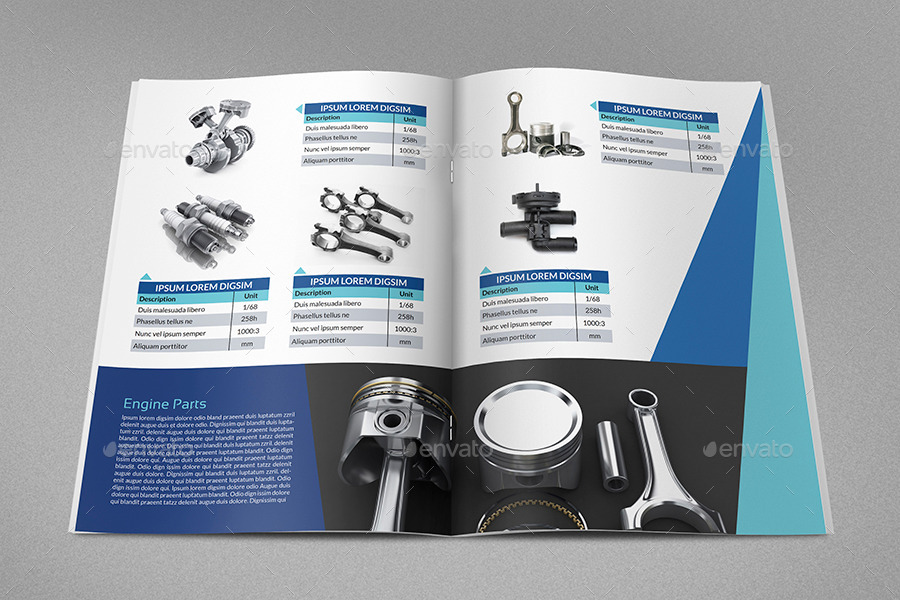An Beginner's Adventure to Locating Auto Parts

As for maintaining your vehicle, locating the right auto parts can appear daunting, especially for beginners. With a myriad number of options available, from local shops to online retailers, it can be difficult to navigate the world of auto parts. Nevertheless, understanding a few important principles can simplify this process less stressful and help ensure that you find exactly what you need without unnecessary stress.
Many first-time buyers might feel intimidated by the wide selection and sometimes confusing technical jargon used in the auto industry. However, fear not, because with a little guidance and some research, you can become more confident in your ability to choose the ideal parts for your car. Whether you are seeking to replace worn-out components or upgrade for better performance, knowing how to look for quality auto parts is crucial for any car owner. Let's explore the essential tips and tricks to simplify your quest for the top auto parts available.
Comprehending Auto Parts
Auto parts are the pieces that form a vehicle, ensuring its functionality and effectiveness. These parts can range from the necessary items required for fundamental functionality, including the engine and drivetrain, to less significant components like oil filters and timing belts. Knowing these parts is important for any vehicle owner, as it assists in diagnosing faults, performing service, and selecting premium substitutes when needed.
When seeking for auto parts, it's important to understand that they can be grouped into two main types: original equipment manufacturer components and third-party components. OEM parts are made by the vehicle maker and are designed to fit specific models. On the contrarily, alternative parts are produced by independent entities and may offer a range of options in terms of quality and cost. Being aware of the differences between these types can influence your purchase decisions significantly.
Finally, awareness with your automobile's specifications is vital for locating the right vehicle parts. This familiarity allows you to narrow down your inquiry and steer clear of potential errors. Regardless of whether you're checking out a local auto parts store or exploring online, having the accurate details at hand will facilitate the task and help you to make smart decisions, ensuring your vehicle operates effectively for numerous miles to come.
Where to Find Auto Parts

Locating the appropriate auto parts can at first seem overwhelming, but there are several trustworthy sources to explore. Local auto parts stores are usually the first stop for numerous DIY mechanics. These shops typically have experienced staff who can support you determine the particular parts you need and may also offer advice on mounting. Plus, being able to look at the parts in person makes it easier to confirm you’re getting the right components for your vehicle.
An additional fantastic avenue is online retailers. Websites focused on auto parts commonly have extensive inventories and reasonable pricing. Several of these platforms allow you to locate parts based on your vehicle's manufacturer and version, making it easier to acquire exactly what you need. In addition, customer reviews and ratings can help advise your choices and direct you towards high-quality products.
Lastly, do not overlook checking out salvage yards or auto recycling centers. These places can be a goldmine of used parts at significantly lower prices. While shopping at salvage yards can be variable, it’s beneficial the effort if you are looking to save money. Just ensure that any parts you purchase are in satisfactory condition and fitting with your vehicle.
Tips for Buying Auto Parts
While selecting auto parts, it's important to be aware of your vehicle's specifications. Be sure to have your car's make, type, and production year on record, as this data will aid you find the parts that are suitable for your vehicle. Additionally, know with the specific part number if you can, as this will also ensure that you are choosing the correct component. Preparation before shopping can help you avoid mistakes.
Next, consistently consider the quality of the parts. Even though it might be enticing to go for the most affordable choice, low-quality parts can lead to more significant issues down the line. Seek out well-known brands and read customer feedback to assess the reliability of the parts you are considering. Sometimes, paying a slightly more for a reliable brand can translate to better performance and quality.
Lastly, utilize online resources and local stores. Several websites have comprehensive catalogs with parts and prices, and you can often come across discounts or promotions. Nonetheless, do not ignore local auto parts stores, as they can provide immediate access to the parts you need. Consult with knowledgeable staff who can give advice and recommendations based on your specific needs. Combining online and local shopping can often yield the optimal outcomes in your quest for quality auto parts.
